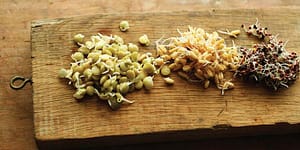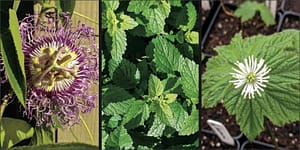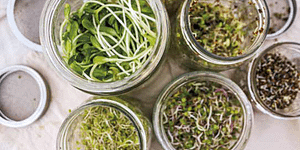The Right Way to Hydrate

Everyone knows water is important, but advice on how much to drink is wildly different. “Drink your weight in ounces of water each day”, “drink before you’re thirsty”, “drink eight 8oz glasses”, and the list goes on. Unfortunately, you can drink too much water, and it can be detrimental to your health. Read on to find that sweet spot and drink up!
The following is an excerpt from Peak by Marc Bubbs. It has been adapted for the web
Dehydration can impact your performance. Today, experts know fluid deficits as little as 2 percent bodyweight can compromise cognitive function and aerobic exercise, 3–5 percent dehydration can impair sport-specific technical skills and anaerobic output, and severe dehydration at 6–10 percent bodyweight can decrease cardiac output, sweat production, and blood flow to muscles. Rewind back to the 1960s when drinking water during a marathon was seen as a sign of weakness. Your opponent would pounce on the opportunity to up their pace and leave you in the dust. By the late 1970s, the science on hydration had evolved. Then over the next few years something strange started happening: runners were getting sick, sometimes dangerously sick.
They were drinking water to excess.
The term is hyponatremia, and sadly endurance athletes have died in competitions as a result. Meanwhile, renowned South African sport scientist and emeritus professor Tim Noakes of the University of Cape Town was leading the boom in research on the importance of adequate hydration for performance. As Noakes and colleagues scrambled to uncover why this was happening, they discovered that a small group of individuals were genetically predisposed to problems if they drank too much water.
For most people, if they drink too much water they begin to urinate much more frequently. Because it’s an annoying and undesirable side effect, most people simply adjust their intake unconsciously. In individuals who over-secrete the powerful antidiuretic hormone (ADH), this doesn’t happen and they become overly hydrated.1 Due to the exaggerated output of ADH, their brain acts as if they’re dehydrated, pumping out more and more ADH until they eventually stop urinating completely (and if they do urinate, it’s dark yellow or brown). These people then assume (mistakenly) that they’re dehydrated and decide to drink more water. This is when things turn deadly.
Blood levels of sodium start to drop and water moves into the brain, causing swelling and loss of consciousness. They effectively become waterlogged. It’s an avoidable situation that only impacts one out of five people. Because the consequences are potentially fatal, the American College of Sports Medicine (ACSM) changed their position in 2007 to recommend recreational athletes “drink to thirst” (and not ahead of thirst) to avoid this tragic outcome.
If you want to personalize your hydration strategy, a simple “weigh-in” and “weigh-out” before and after training can help estimate the amount of fluid you should be consuming. Typically, a loss of 1 kg bodyweight (2.2 lb.) represents approximately 1 L (about 2 pints) of fluid loss. Most athletes will consume between 0.4–0.8 L/hour during exercise and will hydrate a little more aggressively post-training or postgame at 1.25–1.5 L for every 1 kg bodyweight lost.2
- Tim Noakes, “The lore of running, hydration and increasing longevity,” Dr. Bubbs Performance Podcast, Podcast audio, June 22, 2017, https://drbubbs.com/podcastepisodes/2017/10/episode -42-the-lore-of-running-hydration-increasing-longevity-w-prof-tim-noakes
- D. T. Thomas, K. A. Erdman, and L. M. Burke, “American College of Sports Medicine joint position statement: nutrition and athletic performance.”
Recommended Reads
Recent Articles
Want to start your own medicinal herb garden? Passionflower, lemon balm, and goldenseal are great places to begin! These herbs are jam-packed with medicinal properties and easy to grow in a majority of climates.
Read MoreSprouts are easy to cultivate, mature quickly and pack a nutritional punch! You can make nutrient-rich sprouts from all kinds of edible seeds in your kitchen.
Read MoreSuffering from frequent headaches is miserable and immobilizing. If you haven’t had luck treating and preventing your headaches, skip the over-the-counter approach and prepare herbal formuals for migraines to use in the future! The following is an excerpt from Herbal Formularies for Health Professionals, Volume 4 by Jill Stansbury. It has been adapted for the…
Read More“It is more important to know what kind of person has a disease than to know what kind of disease a person has.” —Hippocrates Drawing on her decades of clinical experience and her extensive research, Dr. Jill Stansbury offers an unparalleled range of herbal formulas in her five-volume set, Herbal Formularies for Health Professionals. For each…
Read More








